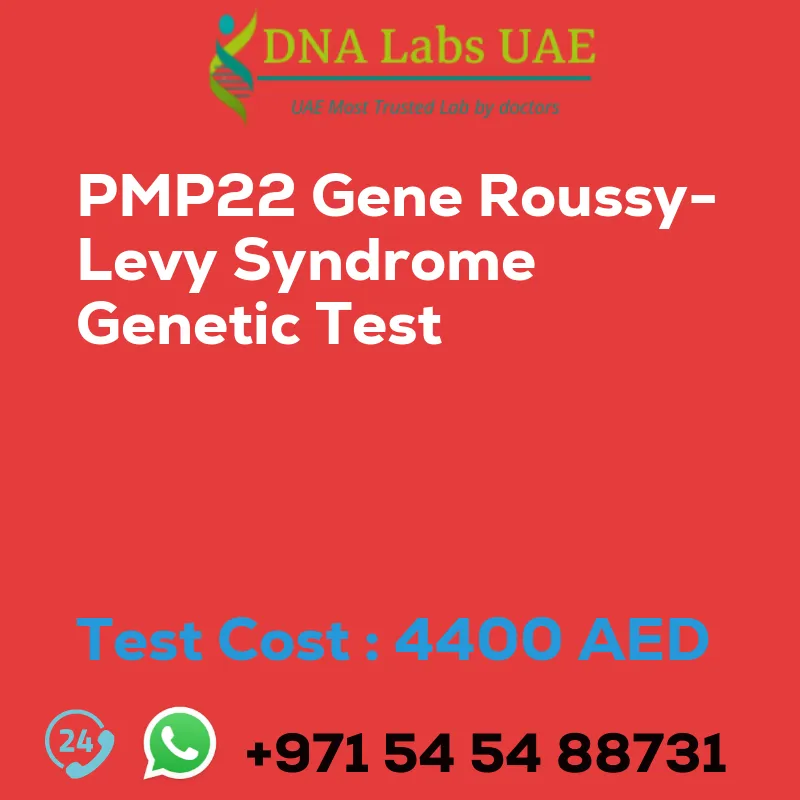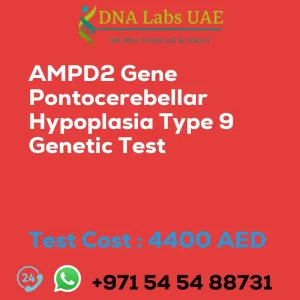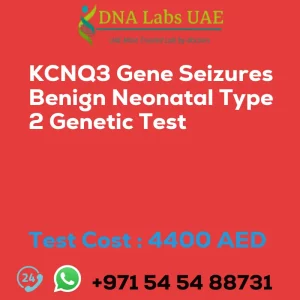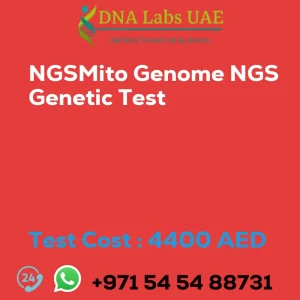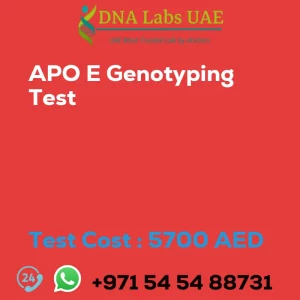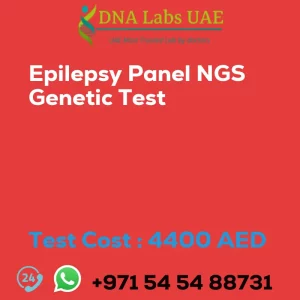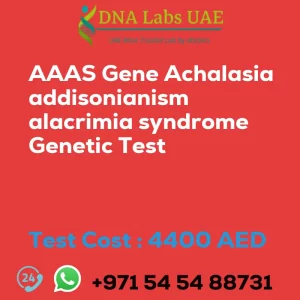PMP22 Gene Roussy-Levy Syndrome Genetic Test
At DNA Labs UAE, we offer the PMP22 Gene Roussy-Levy Syndrome Genetic Test for individuals who suspect they may have this genetic disorder. The test helps diagnose Roussy-Levy syndrome, also known as Charcot-Marie-Tooth disease type 1A (CMT1A).
Test Details
Roussy-Levy syndrome is a genetic disorder that affects the peripheral nerves, causing muscle weakness and sensory loss in the extremities. Our PMP22 Gene Roussy-Levy Syndrome Genetic Test uses NGS (Next-Generation Sequencing) technology to analyze the PMP22 gene for mutations or variations.
Components
- Test Name: PMP22 Gene Roussy-Levy Syndrome Genetic Test
- Price: 4400.0 AED
- Sample Condition: Blood or Extracted DNA or One drop Blood on FTA Card
- Report Delivery: 3 to 4 Weeks
- Method: NGS Technology
- Test Type: Neurological Disorders
- Doctor: Neurologist
- Test Department: Genetics
Pre Test Information
Prior to undergoing the PMP22 Gene Roussy-Levy Syndrome Genetic Test, it is important to provide the clinical history of the patient. Additionally, a genetic counseling session may be conducted to draw a pedigree chart of family members affected by Roussy-Levy syndrome.
Test Process
To perform the test, a sample of DNA is required. This can be collected through a blood sample or cheek swab. The DNA is then sequenced using NGS technology, which reads the genetic code of the PMP22 gene. The obtained sequence data is compared to a reference sequence to identify any genetic variations or mutations.
Implications and Limitations
By identifying specific mutations or variations in the PMP22 gene, the NGS genetic test can confirm a diagnosis of Roussy-Levy syndrome. It can also assist in genetic counseling and family planning, as it determines if an individual carries the mutation and has the potential to pass it on to their children.
It is essential to consult with a healthcare professional or genetic counselor to fully understand the implications and limitations of genetic testing for Roussy-Levy syndrome. They can provide guidance on the appropriateness of testing, the interpretation of results, and any potential treatment options or management strategies.
| Test Name | PMP22 Gene Roussy-Levy syndrome Genetic Test |
|---|---|
| Components | |
| Price | 4400.0 AED |
| Sample Condition | Blood or Extracted DNA or One drop Blood on FTA Card o |
| Report Delivery | 3 to 4 Weeks |
| Method | NGS Technology |
| Test type | Neurological Disorders |
| Doctor | Neurologist |
| Test Department: | Genetics |
| Pre Test Information | Clinical History of Patient who is going for PMP22 Gene Roussy-Levy syndrome NGS Genetic DNA Test A Genetic Counselling session to draw a pedigree chart of family members affected with PMP22 Gene Roussy-Levy syndrome |
| Test Details |
The PMP22 gene is associated with Roussy-Levy syndrome, also known as Charcot-Marie-Tooth disease type 1A (CMT1A). This genetic disorder affects the peripheral nerves, leading to muscle weakness and sensory loss in the extremities. NGS (Next-Generation Sequencing) is a genetic testing technique that can analyze multiple genes simultaneously. In the case of Roussy-Levy syndrome, an NGS genetic test can be performed to identify mutations or variations in the PMP22 gene. This test involves collecting a sample of DNA, typically through a blood sample or cheek swab. The DNA is then sequenced using NGS technology, which reads the genetic code of the PMP22 gene. The obtained sequence data is compared to a reference sequence to identify any genetic variations or mutations. By identifying specific mutations or variations in the PMP22 gene, the NGS genetic test can confirm a diagnosis of Roussy-Levy syndrome. It can also help in genetic counseling and family planning, as the test can determine if an individual carries the mutation and has the potential to pass it on to their children. It is important to consult with a healthcare professional or genetic counselor to understand the implications and limitations of genetic testing for Roussy-Levy syndrome. They can provide guidance on the appropriateness of testing, the interpretation of results, and any potential treatment options or management strategies. |

